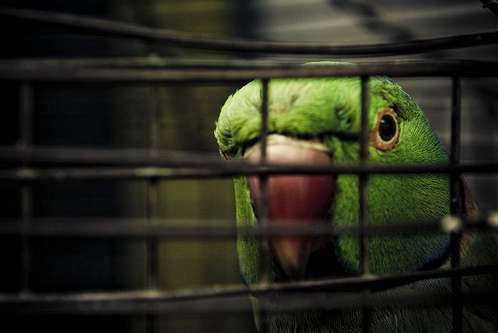FWP:
SETS == KYA; POETRY
GOOD/BAD: {22,4}
This verse belongs to the 'lover is a bird' set; for others, see {126,5}.
The verse has been so extensively discussed by Naiyar Masud and Faruqi, that I'm only sorry I can't reproduce their whole commentaries without adding undue length. People who know Urdu well would be foolish not to consult the originals.
I'd only point out the excellent 'kya effect' multivalence of the second line: it can be taken as a genuine question ('what harm does it do them?'); or else as an indignant negative assertion ('as if it did them any harm!').
In addition, we are left to decide for ourselves what it is about the situation described in the first line that might displease the 'song-weighers of the garden'. The caged bird's lamenting in itself? His lamenting without sufficient skill and 'song-weighing'? His lamenting with greater skill and 'song-weighing' than they themselves can achieve? His lamenting from within a cage? His continuing to lament after being captured and caged?
And of course,
his existence and/or lamenting might not displease the garden birds at all, since the grammar cleverly leaves
this possibility open as well. His question might reflect his own ignorance,
isolation, and desperate anxiety.

Nazm:
That is, seeing me imprisoned and absorbed in grief and lamentation, why do people who are happily placed despise me? What harm do I do them? (128)
== Nazm page 128